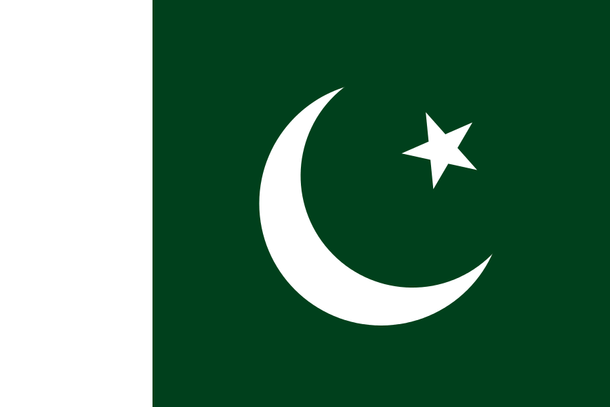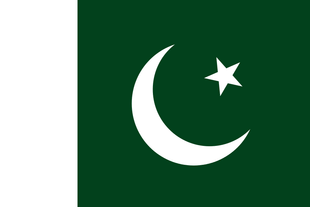Politics
Why General Durrani's Comments Must Anger You
Syed Ata Hasnain
May 15, 2015, 06:41 PM | Updated Feb 11, 2016, 09:33 AM IST
Save & read from anywhere!
Bookmark stories for easy access on any device or the Swarajya app.


Some conclusions we can draw from Al Jazeera’s Panel Discussion with Lt Gen Asad Durrani (Retd), Former DG Pakistan ISI.
https://www.youtube.com/watch?v=Z__lyS-wI7c
When does one start a commentary with a Youtube link/url as a quote? One of the possible answers could be – when you are reasonably disgusted with an uploaded video and it draws your ire. You will have to view this 47 minute recording of a panel discussion involving Lt Gen Asad Durrani (Retd), Pakistan’s former DG ISI, in the crucial period of the early 90’s, to agree with me. It was recorded by Al Jazeera at Oxford University and is titled ‘Head to Head – Pakistan: Victim or Exporter of Terrorism’. It is dated early Apr 2015 so it was obviously conducted in the last few weeks. You need not spend time viewing the video if you believe me; just read my commentary.
Pakistan’s claimed victim status in the Global War on Terror is nothing new. In fact, 9/11 gave Pakistan the handle to exploit the events in Afghanistan (post 9/11) to do two things. First: Take away attention from what it was doing in Jammu & Kashmir (J&K) i.e. the proxy war that it was sponsoring, handling and virtually fighting. Two: focus world attention on itself where it projected that it was the biggest sufferer of GWOT.
Even when things began to go horribly wrong after the events at Lal Masjid in 2007, it refused to accept that much of what it was suffering was due to its own promotion of terror as an instrument of state power, commencing with the setting up of the Taliban in Afghanistan. I found this tack very evident in its diplomatic dealings even before the Lal Masjid incident.
In 2006, I happened to listen to Maleeha Lodi, who was then Pakistan’s High Commissioner, in London during a lecture at the Royal College of Defence Studies. For 40 minutes the very articulate and suave High Commissioner spoke of the sufferings of Pakistan and how it had sacrificed so much to assist the US-led alliance in Afghanistan. To answer my question about the sufferings of the people of J&K because of the proxy war, they sponsored in that region, she very charismatically side tracked the issue and stated that it was fight-not of terrorism- but of freedom in order to overthrow the mantle of India’s tyranny. That was and has been Pakistan’s oldest stance on its meddling in the affairs of J&K, bringing a perfectly peaceful situation to a boil. It got my blood boiling.
So when I view a panel discussion with Asad Durrani and he repeats all this ad nauseum the blood boils once again. Durrani starts by stating that he has no regrets for the creation of the Taliban because it was the need of the times; he reinforces that by saying that if had to go back in history and exercise a choice he would do it again and probably do it better.
He states that the Taliban made sincere efforts towards reconciliation but the US was so adamant at its physical destruction that it failed to rationalize. In a skewed sense of reasoning he says that Pakistan helped arm the Taliban only because that enabled the Taliban to remain relevant and thus meaningfully indulge in negotiation. In fact, he claims Pakistan deserves applause for the manner it extended control over the Taliban. This is the most bizarre of all arguments.
Despite the billions of dollars that the US invested in Pakistan to gain its support to fight the Taliban, Durrani feels that the US and Pakistan were actually rivals and never allies in Afghanistan. Not very shockingly because Pakistan’s stance on double speak, denial as a weapon and subterfuge have always been a part of its strategic outlook, he justifies the ISI’s doings because as per him in statecraft there is no such thing as morality.
When queried on the blow back effect that Pakistan is suffering because of its policies in Afghanistan, Durrani calls it collateral damage which inevitably happens in such situations. He states that it is worth it because Afghanistan is slowly emerging free of foreign rule. It almost seems that he is a protégé of Hamid Gul the other notorious ex ISI Chief.
On Osama bin Laden (OBL) besides everything else, about knowing and not knowing that OBL was in Abbottabad, Gen Durrani surprises us with his refusal to condemn OBL putting theatrics and ambiguity as cover. I have not met an educated person thus far who has taken a theory like this about the inside job in 9/11, seriously. Durrani actually tries explaining and rationalizing it.
The most damning comment that Durrani makes is that he virtually admits that the war by a thousand cuts evolved and put into place against India, is continuing. No Pakistani on talk circuits ever speaks like this. The fact remains that for all its shenanigans against civilized society and nations of the world, Pakistan has been given a leeway to pursue its nefarious activities which it considers as its national interest. For a nation such as this, with its civil society paralyzed and a Deep State running its affairs, its reliance on nuclear weapons to keep the world on tenterhooks and sham act of being the frontline state against terror as a part of GWOT, Pakistan has tested the will and patience of the world. Recent literature deeply researched, clearly holds the Pakistan Army responsible for the state of things and surmises that nothing will change. Durrani’s admission appears to confirm this.
The US appears powerless to control it, dependent as it is on Pakistan to stabilize Afghanistan and prevent a resurgence of the Taliban and return to being the core center of Global Terror. The US, after its diluted interest in Saudi Arabia and the Middle East also hopes that Pakistan can withstand the eastward march of the Islamic State. With Iran not yet out of the woods in terms of its return to the conventional understanding of being a part of the international community, it is Pakistan which remains the US’s frontline state to balance the Islamic State; this role should ultimately be that of Iran. That may sound contentious to some and the subject of a future commentary.
So, how do we view the future with the role of Pakistan increasing and its significance acquiring new meaning by the day? Commentaries have spoken of Pakistan’s increasing self-confidence after the run of recent events which it perceives in its favor. A renewed campaign to squarely blame India’s intelligence agencies of instigating and controlling internal security problems inside Pakistan has been launched after the recent Corps Commanders Conference. You have to grant it to the Deep State; when it wants to project an idea or a thought everyone in Pakistan’s security establishment speaks the same language. The latest issue is Baluchistan; even the cold blooded killing of Shias is first ascribed to India.
There remains a school of thinking among those who watch Pakistan with deep interest that the country will implode in a few years given its inconsistencies, failing civil society norms, uncontrollable sectarian discord and poor economy which is largely threatened by power and water shortage and climate change. The debate on whether such a phenomenon is advantageous to the world/region or disastrous is endless. For India it is more important to view bottom line surmises. Pakistan is not serious about any talks; these only give legitimacy to a government which is run in effect by the Deep State. It is not going to stop at anything to prevent India’s rise as a big power and in fact will obsessively prevent that happening; it has to keep us engaged in low intensity conflict and create dissensions in India’s inclusive society. It is perfectly comfortable at following a dual track policy with peace parleys and a thousand cuts war. It legitimizes its pursuit of national interests which are counter to those of the international community and has no qualms about morality taking a back seat.
The Indian Government has been cool towards Pakistan. Understandably, it is maintaining its flexibility but perhaps this is not the time for cricket exchanges and business as usual. When a state openly declares a war by a thousand cuts on your country and you absorb it without punishing that state by whatever means you can, you virtually acquiesce to its strategy. It may not be entirely prudent to believe that we need not act because Pakistan will anyway implode in five years. Those five years may extend far beyond and if we have not done enough proactively by then we will surely be on the back foot.
For all his suaveness and articulation Asad Durrani essentially remains an India hater. Grateful that he made it so evident with this discussion.
The writer is a former GOC of India’s Srinagar based 15 Corps, now associated with Vivekanand International Foundation and the Institute of Peace and Conflict Studies.





